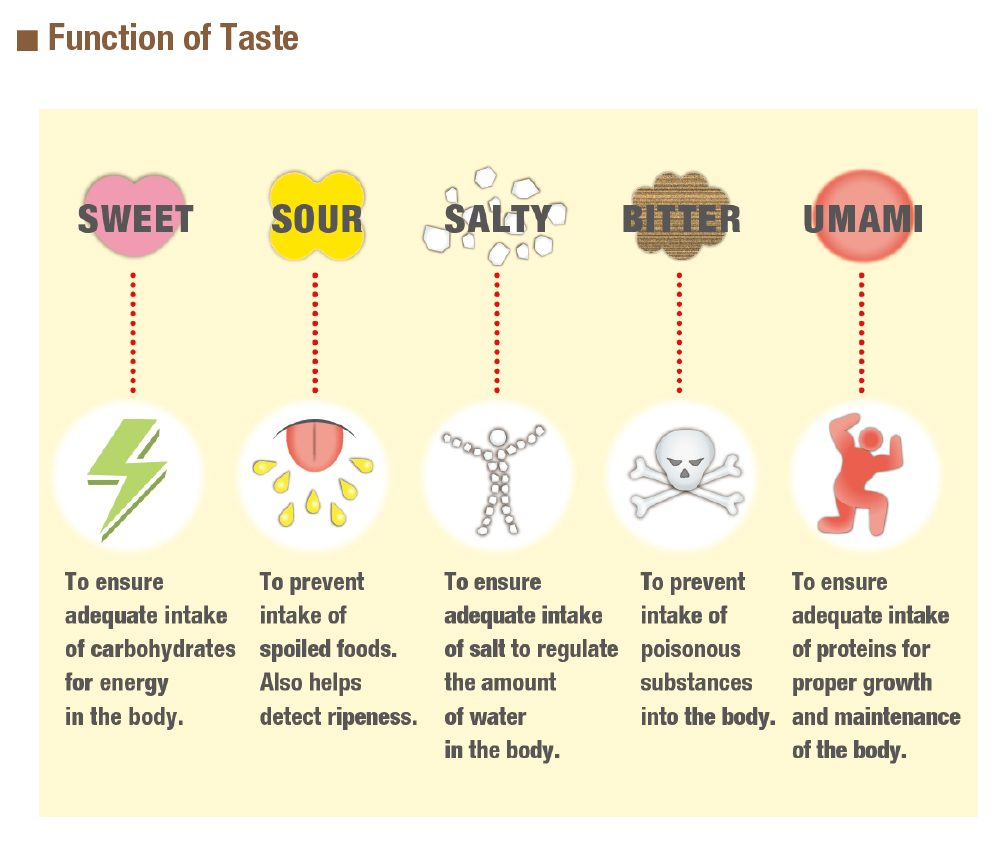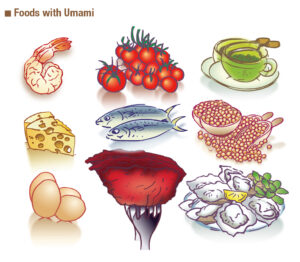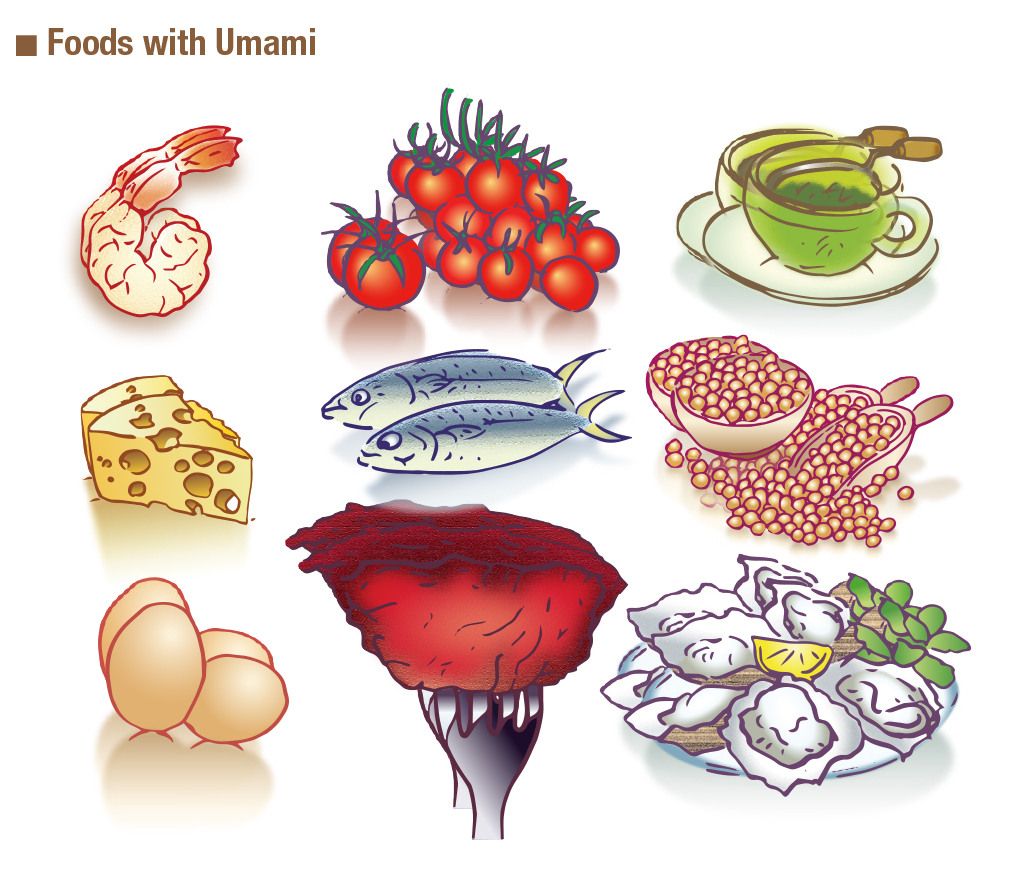Could Mankind Survive Without Umami?
More and more people are becoming familiar with umami, the fifth basic taste—especially with the recent “umami boom” taking place around the world. But naturally, most people don’t consider umami to be all that important. It’s a word one hears in restaurants, and possibly while studying biology in Secondary School.
But there’s more to it than that. Umami plays such a surprisingly fundamental role in human health and nutrition that it’s not an exaggeration to state that human beings couldn’t live without it.
■Foods with Umami
■Function of Taste
Umami is also believed to be a signal for one of the most important and fundamental parts of nutrition: protein, which is found in abundance in meat, eggs, milk, and various beans. For this reason, it’s reasonable to say that early man’s affinity for umami is closely connected to hunting, the mastering of fire, and cooking, which help to provide ample and easy-to-digest protein to an entire clan or tribe. And the connection between umami and protein isn’t all that surprising, when you consider that proteins are made up of amino acids. Incidentally, umami was first identified by isolating glutamate, which led to Ajinomoto Co., Inc.’s creation of MSG.
What Exactly Is Umami?
It’s easy for most people to imagine sweet, sour, salty, or bitter tastes. But what about umami? Compared to the other basic tastes, umami tends to be more subtle, and therefore tends to get overwhelmed by other tastes in combination.
Therefore, it’s notoriously difficult to describe umami in words. Most identify it as the special savory or meaty taste of chicken soup stock, tomato, cured ham, or cured cheese. Here are some of the ways people use to describe the taste of umami:
- Savory
- Delicate and subtle
- Mellow
- Earthy, mushroom-like
- Mouth-watering
- Meaty
- Lingering, with a pleasant aftertaste


Eat Well, Live Well.
Umami and the Infant
Even now, umami plays an extremely important role in the survival of each and every individual. This is particularly true during infancy.
Human gestation lasts for about 40 weeks, during which time a new life develops from a single fertilised cell into a fully functioning human infant, ready to enter the world. For these 40 weeks, the embryo lives in the amniotic fluid, and by around week 16, the growing baby has developed taste receptors which allow it to sample various tastes from the mother’s amniotic fluid itself.1 The amniotic fluid is rich with free amino acids, and among them, glutamate is found in the highest concentration.2 That means that umami is one of the first tastes we experience, before we’re even born!
Umami: Fundamental to our Quest to Eat Well, Live Well.
It’s been more than 100 years since Ajinomoto Co. first analysed glutamate, refined it into MSG, and coined the word “umami” to describe the way it tastes. Since then, the word umami has made its way into the dictionary, while we have diligently continued our research into the science of amino acids.
Nobody could have foreseen the crucial importance of umami to our survival as a species, or to early infant development, when we began this journey. But it’s perfectly in keeping with our mission to help people to eat well and live well.




